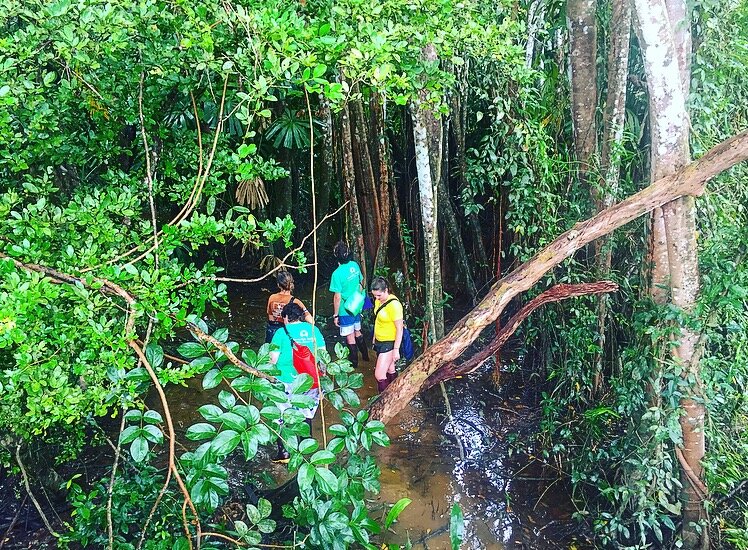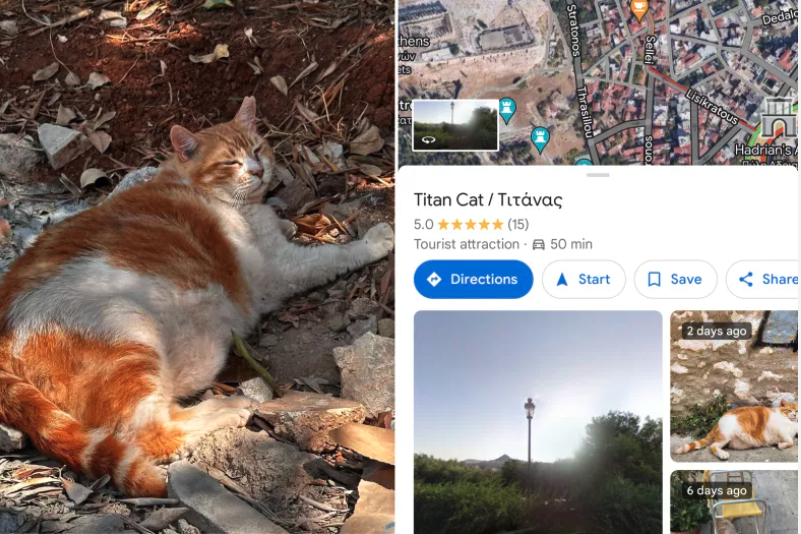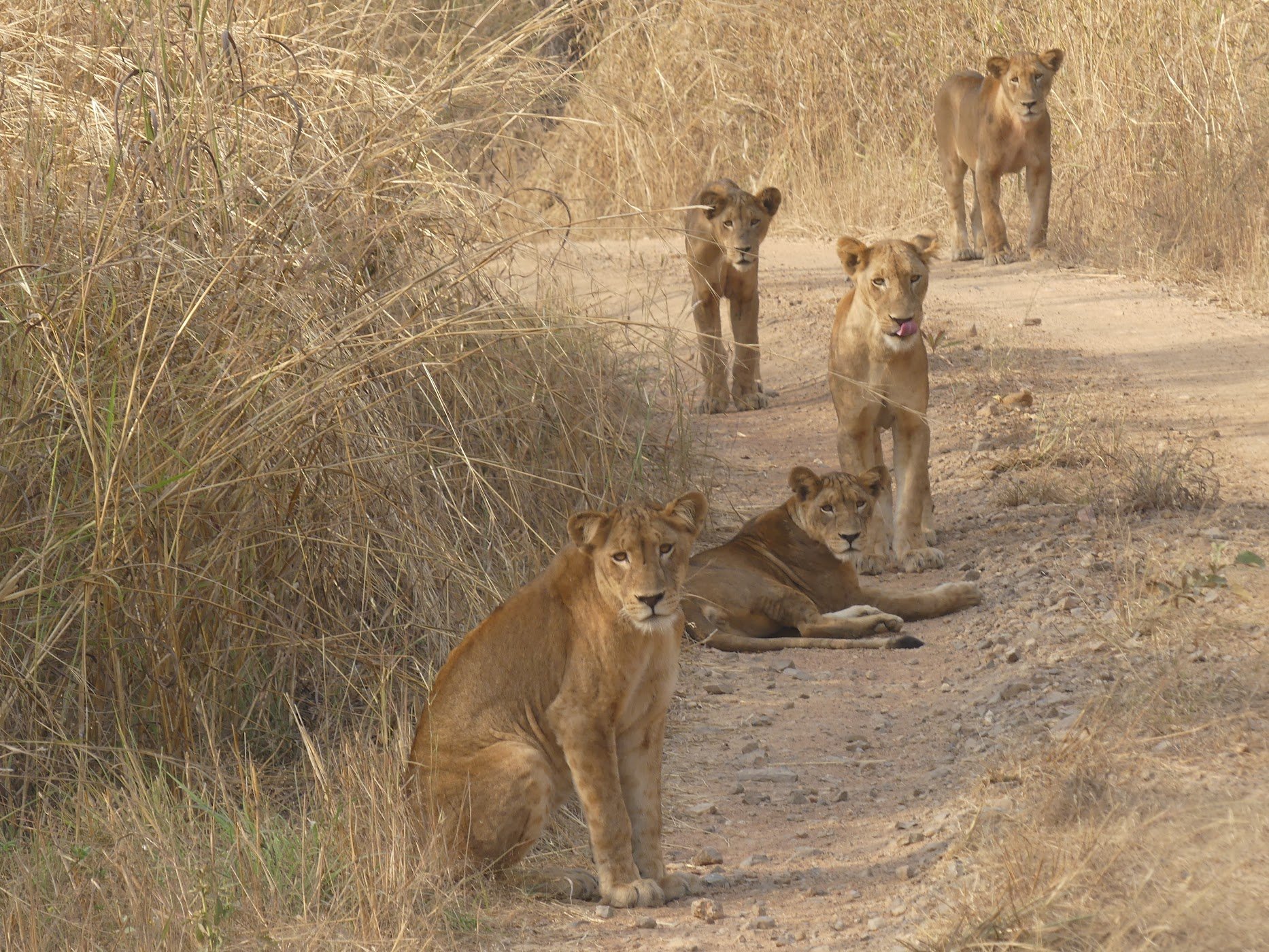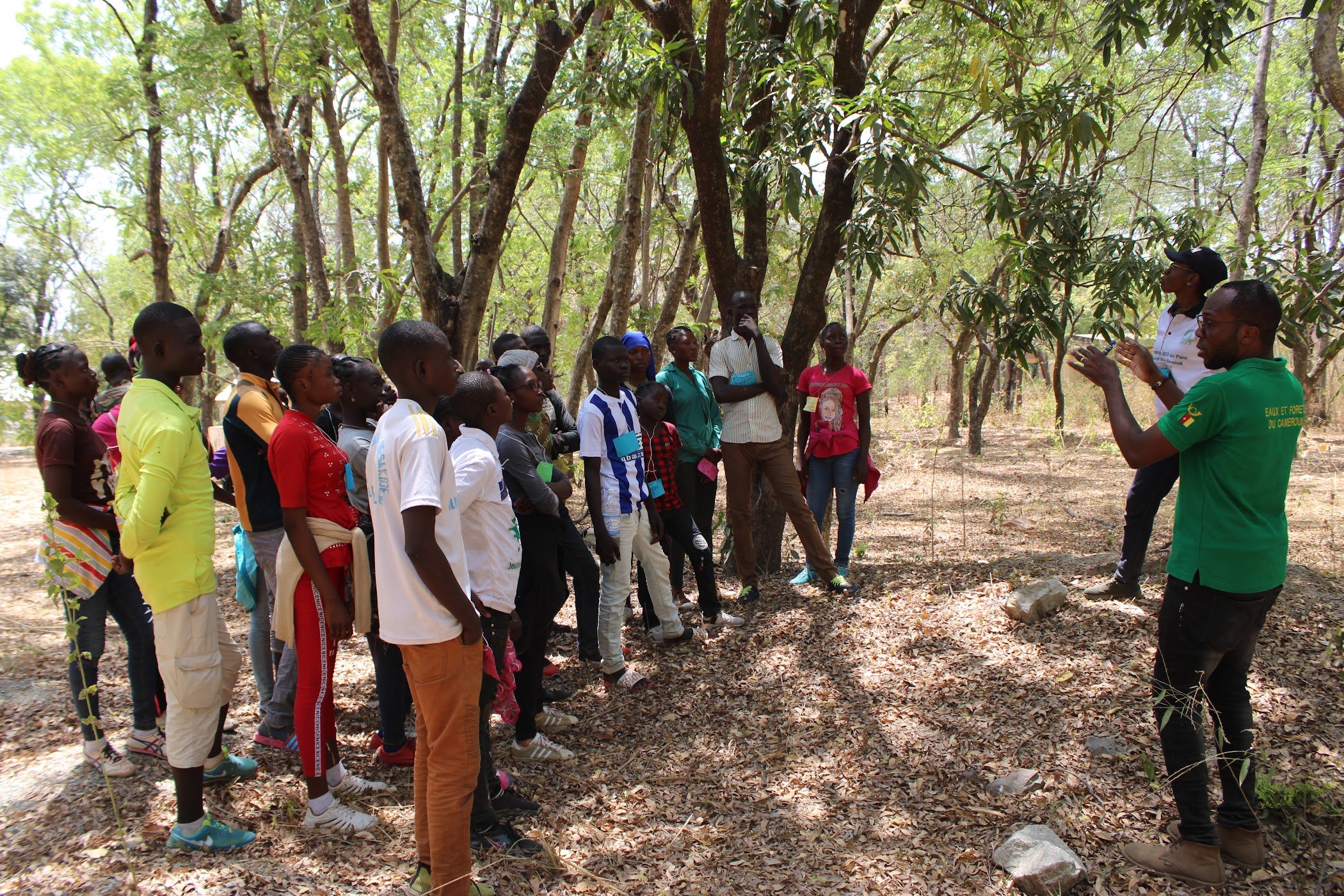
Stories
Inspiring stories from incredible people working with animals and biodiversity conservation around the world.
NEW INTERVIEWS
COMING SOON!
The famous cats of Athens - how one organization is feeding 500 stray cats a day!
When you think of Greece, you may think of the crystal clear blue water, the delicious fresh good or the Parthenon. Well, I think of cats.
Opening Google Maps in Athens, in between searches for restaurants and historic sights, you might notice cats pinned as “attractions” in places around Athens.
Where are you, Titan?
One of the more famous cats is named Titan. He has a pin on Google Maps in the area where he is most sighted in Athens. He’s known as Athen’s "chonkiest" tourist attraction with all reviews giving him a very respectable 5 stars and comments such as “he did not disappoint” and “an absolute unit”. I had to find him.
There are no shortage of cats in Athens, or in Greece in general. Walking around central Athens in late October in a failed attempt to find Titan, I noticed little piles of cat food tucked away in street corners, behind plant pots and down side streets. I wondered, who is feeding these cats?!
After doing some searching online, I came across Nine Lives Greece – a volunteer organization that helps stray cats in Athens through feeding, vet care, neutering and adoption. I reached out to them and had the wonderful opportunity to join one of their volunteers, Eftihia, on a feeding route around central Athens one evening.
A special walk around Athens
Eftihia was waiting for me outside the Acropolis metro station with the biggest bag of cat food I ever seen! Eftihia lives in Athens where she lives, works and volunteers her spare time to Nine Lives Greece as a board member. She was the perfect person to tell me all about the charity, the stray cat situation in Athens and personally introduce me to some of the cats!
Nine Lives was created 17 years ago, back in 2006 and officially became a society in 2008. At the time, there was no other charity in Athens for the cats and no municipal or state programme for the strays.
We headed off on Eftihia’s usual feeding route which circled the main touristy area of Athens and the Acropolis. She told me it was impossible to estimate the number of stray cats in Athens, but it is definitely in the upper thousands!!
Animal Welfare in Greece
As we walked around and stopped at various spots to feed the cats, I asked her to tell me a little bit about the overall animal welfare situation in Greece.
“Unfortunately, standards of animal welfare in Greece overall are below par and the necessary legislation is not adequately implemented. Unlike other European member states, we do not closely regulate pet ownership or licensing and do not impose sanctions on neglect or abuse as often as we should, however in recent years this is improving.
I must say that it does depend a lot on the area, having grown up on a very touristic island myself, there is a massive difference between the areas in which expats live and the areas in which they don’t. Wherever there is a large expat population there are usually various charities and societies set up that care for the strays. There are still some anachronistic attitudes towards animals in Greece and lacklustre or even non-existent government involvement for decades.
Often, cats are considered working animals with the job to keep down the rodent population, so it means people don't feed them as there is the myth that they need to be hungry in order to hunt. Also, Greek culture is still quite averse to neutering and spaying stray cats, and due to the mild climate and the abundance of food sources it's very easy for the stray cat population to grow exponentially. Some people consider neutering unnatural which leads to the inevitable frequent litters of unwanted kittens and then of course to diseases and malnutrition.
“Thankfully, the resistance to neutering is gradually waning and the government seems to be more willing to help so hopefully in the future significant changes can be observed.”
The Story of Nine Lives
Eftihia told me some more about the founders of Nine Lives and the important role they play in the welfare of stray cats in Athens.
“All the founders have a strong background in animal welfare and a special connection and love for cats.
We help in a variety of ways, first and foremost with TNR (Trap Neuter Release) programmes, that we run throughout Athen. We are proud to say that last year we managed to neuter over 1,700 cats!! We also have numerous colonies that we feed, around 500 cats per day, with the help of our volunteers. We aim to rehome the cats that simply cannot survive on the streets, so we also run adoption programmes and of course we try to educate the locals as much as possible to build more compassionate attitudes towards the strays.
Nine Lives feeds 500 stray cats in central Athens every single day.
The work we do is important, as if it wasn’t for Nine Lives and other charities around the city, the situation for the poor cats would be even more dire than it is currently.
The spay/neuter aspect of our work is particularly important so keep cat colonies healthy and stable.”
Eftihia got involved with Nine Lives first and foremost for her love of cats. It was so clear when walking around with her how much she adored these cats and how much these cats adored her. She knew each and every one of them by name and they would run to her from everywhere as soon as they heard her voice. It was amazing to see the bond and trust Eftihia had created with these cats.
“It was not enough for me to just feed the strays in my neighbourhood, I wanted to become more involved in a cause, and to make significant change. I began feeding with Nine Lives once a week and shortly became a member of the organisation’s board. It is great to be part of such a community that cares so much, is so involved with cat welfare and has a common goal. I give and take so much love from these cats and its a great feeling to know that I am doing as much as I possibly can to truly help these babies stay healthy and happy.”
How can tourists help?
Approximately 6.4 million tourists visit Athens every year!! Even in late October, and officially the “low season”, the crowds were still there! I asked Eftihia about how tourists can help with the stray cats when they visit.
“Anyone visiting Greece is sure to run in to a stray cat. If they want to, they could always carry some cat food with them to feed any hungry strays they might encounter. However, as a general rule we would suggest not feeding stray cats when in a restaurant or other places, as it could irritate the owners or even other customers which could then result in the cats being harmed. But it is great idea to keep any leftover meat or fish and feed it to the stray cats by the nearest rubbish bin and providing them with water is also very important, especially throughout the summer as they tend to resort to drinking the water dripping from air conditioning units.
Something we do see is people giving milk to cats and kittens and this is not a good ideas as it gives them diarrhoea. I know that giving kittens milk is quite a common practice but is it a complete misconception that it is actually good for them!
Of course report any abuse or poisoning to the police and take any ill or injured cats to the nearest vet. It’s not always easy to do in a foreign country but on the internet you can easily find the contact to the local animal welfare group which can guide you.”
Finding Titan
At one of the final feeding spots, a large orange cat slowly made his way over to us. It was none other than the famous Titan!!! We had finally found him. Eftihia explained that he had actually lost some weight after being treated for a stomach fluid issue…which explained his past “chonky” reputation!
The future of cats in Athens
Finally, I asked Eftihia about her vision for future for the cats in Athens.
“Overall, we want to promote cat welfare through neutering, education and enhanced relations between humans and cats in Greece. In the future we would like Greece to become a cat-friendly country where humans treat cats with justice and respect.”
A big thank you to Eftihia for taking the time to bring me around Athens to feed the cats and tell me more about Nine Lives – a truly wonderful charity making a really big impact in Greece!!
Find out more!
To find out more about Nine Lives Greece and to give a donation to help these cats, see the links below:
· Visit the Nine Lives website.
· Donate to Nine Lives here. 100% of funds go straight to the cats and their wonderful programmes.
· Follow Nine Lives on on social media (Instagram).
· Volunteer if you are visiting Athens or join Eftihia or one of the other lovely charity members for a very unique walking tour around Athens (with lots of cat interaction guaranteed!).
Lions & Football - Saving Lion Strongholds in Cameroon
I had the absolute privilege to spend some time with Dr Kamgang and ask him some questions about his amazing work on behalf of Conservation Careers. I wanted to share his passionate story about his working with lions in the Bénoué ecosystem.
First, check out this video below with Serge talking about his word. It’s narrated by none other than DAVID ATTENBOROUGH!
The Bénoué ecosystem in northern Cameroon is the hotspot for lions in West and Central Africa. However in this area, which includes three national parks -- Faro, Bénoué and Bouba-Ndjidda and 32 hunting zones, only 250 lions remain across the vast 30,000 km² landscape,. The region has faced severe threats from habitat loss and poaching over the years. More recently, increased human migration to the area means an increasing number of livestock, illegal mining and habitat degradation within the ecosystem. This has caused human-wildlife conflict as lions encounter local herders and kill their animals.
Dr Serge Alexis Kamgang has dedicated his life to solving these issues and protecting the last remaining stronghold of lions in the Bénoué ecosystem, whilst promoting a coexistence with the local community. He is a recipient of one of this year’s Whitley Awards grants for his work through BEDD (Biodiversity, Environment and Sustainable Development www.bioedd.org), an NGO (supporting the government in biodiversity conservation in Cameroon) and the only lion conservation programme in the region.
Training lion guards.
Credit: WFN
How a passion for lions began
Dr Serge Kamgang grew up in Western Cameroon in a small village called Banka, surrounded by savannah ecosystem and mountains.
“Going to school, I would pass through landscapes where I would see wildlife such as antelope and Colobus Monkey. After I went to university and came back, I noticed that species were disappearing, and I started asking myself what happened to those animals and why were their habitats being destroyed?”.
With a passion to learn more about wildlife ignited, Serge chose to study conservation in university and took a role with primates, specifically chimpanzee and gorilla. After finishing a postgraduate degree in Oxford (2016), he continued working for Garoua Wildlife College and the National Parks Services in the Bénoué ecosystem. It was during this time that he discovered many threats facing lions including metal snares on their neck, prey depletion, habitat degradation and cattle encroachment. Serge was motivated to do something about it and set about forming his NGO, BEDD.
Serge and partners conducted the first lion survey in the area in 2015. The results showed that there were only 250 lions left in the Bénoué ecosystem due to habitat loss, poaching and a decline in prey. Added to this, an increase in lions feeding on cattle was causing conflict with local communities around Mbam and Kim region. To find solutions, Serge worked with the national parks to show communities how to protect their cattle against lions, for example by using fences known as Mobile Boma.
Working with the local community.
Credit: WFN
In 2021, Serge and BEDD received funding from National Geographic Society to continue to monitor the lion population in the ecosystem. “It’s a very large complex area that is about 30,000km2 and comprises three national parks and 32 hunting zones. Lions are moving around all these different parts and habitats. The area also has large local human populations, and these communities rely entirely on the biodiversity of the ecosystem.”
Promoting coexistence between lions and people and building trust with local communities
The human population in the area is growing and now exceeds 25,000 people. This means there are 100 times more people than lions and building a strong coexistence between them is a key priority.
Serge believes an integrated approach based on community is essential to conserving lions in the area, working with stakeholders and combining local knowledge with technology to mitigate the rising tensions. Serge, along with his team, work with these communities to train local people on how to protect cattle, implement nature-based solutions and to conserve biodiversity to improve the livelihood of communities.
Involving youth, educating and creating awareness about lions.
Credit: WFN
“Working with communities is very important because they have traditional ways to monitor biodiversity and wildlife. They have so much knowledge about species and where these animals are found. They know the land, the history and the animals better than any of us. Most of the time, a top-down approach for conservation does not work and we know that if we involve the community from the beginning, then we can guarantee the sustainability of a project by training the community so that when we leave, they can manage the wildlife themselves.”
Serge and his team will gather vital data on lion and prey populations using camera traps, local ecological knowledge and satellite collars. Community-based techniques are a vital part of Serge’s work to strengthen the capacity of park authorities through the training of Lion Guards. This involves training young local people who live in the villages to work with national park staff to monitor lion populations. They do this by using smartphones and photographs of different animal tracks so that the lion guards can compare tracks they see on the ground and match it to a lion track. This data is then uploaded on to a map to show all the areas where lions are present and to warn local communities and cattle herders if lions are in the area so that the area can be avoided.
“Our approach and strategy work well because we don’t have time to be in the field all the time. By training local people who live in the area, they can collect the data for us. We also provide them with a monthly salary, motorbike and all the equipment they will need to collect the data for us such as GPS, numeric cameras and mobile phones.”
A big part of the programme is building awareness through educational campaigns in the local communities to increase understanding about lion conservation. The lion
guards also have a role in their communities to spread awareness of the work they are doing. Serge’s programme will improve the knowledge of 1,500 stakeholders – including park staff, local government, and conservationists – on the importance, status and distribution of lions and their prey in the area to inform future management of the species.
Looking to the future, Serge envisions a world where the communities are intertwined with environment and natural resources. With his Whitley Award, Serge plans to:
1. Train 45 park guards and 6 community lion guards, who work together to monitor lion and cattle movements, and mitigate human-lion conflict and other pressures.
2. Improve the knowledge of 1,500 stakeholders on the status and distribution of lion and their prey in the Bénoué Ecosystem to inform future management.
3. Raise awareness of lion conservation among 30% of the local population through educational campaigns.
Dr Serge Kamgang
Credit: WFN
Inspiring the youth as the next generation of conservationists
As a lecturer and educator in the region, Serge not only recognises the importance of inspiring young people but actively includes them in his work by being a mentor for students and giving them opportunities to gain work experience to develop their skills in conservation.
“The advice I always give to young people is to work with conviction. Be honest and work hard and use that conviction in the best way to achieve something, improve its environment and do everything positively impactful.”
Gaining trust, respect and developing strong relationships with leaders of local communities are also important for Serge as it allows him to create more strategies for conservation. He is a key contact for the Cameroon Ministry of Forestry and Wildlife, advising on decisions making about lion conservation in Cameroon.
Using football to bring attention to lions
Lions are the national animal of Cameroon and the national football team are called the Indomitable Lions. But many people in the country, including the football players, have never seen a lion in the wild!
Cameroon’s national football team - the Indomitable Lions
Serge invited the men and women’s national football teams to come to the northern part of Cameroon to visit the lions in the national parks of the Bénoué ecosystem and to inspire them to conserve the species for which their team are named after.
“By doing this, we increased the visibility of lions in Cameroon and improved our ecosystem prospects. It is also a great opportunity to develop a sustainable financing mechanism for protected area management.”
The importance of involving women in the conservation conversation
Serge explained that more could be done in the area to promote women in decision-making.
“We are now trying to involve a gender approach to include women by helping to create associations and increase leadership so that women have a voice when we are developing approaches for sustainable solutions to biodiversity management in the area. That’s a big goal for us.”
Proudest moments
“I think recently being awarded a Whitley Award was a huge achievement for me! It’s helping me gain a profile, not only in Cameroon but internationally. It’s given me great opportunities, such as speaking to you! Now more people know about our work, and it will help me with people behind me do more. It’s given me the opportunity to continue our conservation projects in northern Cameroon and to conserve lions – for that I am very thankful. I’m so happy to be doing what I am doing.
Serge presenting in London as a winner of the Whitley Awards, known as the “Green Oscars”.
Credit: WFN
Find out more
Website:
www.bioedd.org
Facebook: https://web.facebook.com/BiodiversityEnvironnementSustainableDevelopement/ Find out more about Serge’s future plans and the Whitley’s Awards here.













